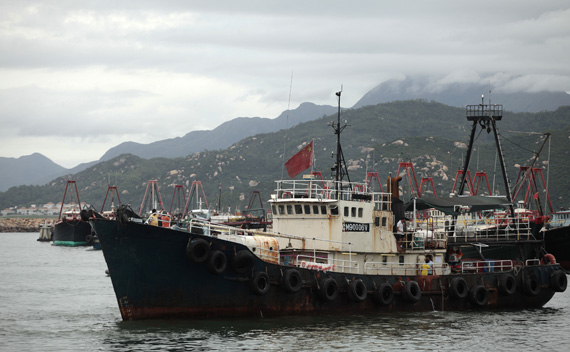What is China Thinking?
More on:
Following the recent months’ turmoil over the South China Sea and now China’s tensions with Japan, I have many questions; most importantly, what is China thinking? From the late 1990s until the mid-2000s, as I chronicled in my book Charm Offensive, Beijing did an excellent job of reassuring nations in East Asia, and particularly Southeast Asia, that it could be a good neighbor, a positive player in regional institutions, and an actor capable of conciliatory and reasonable behavior. In just the past few months, Beijing has damaged that perception and ruined much of the goodwill it took a decade to amass. Vietnam is fast-tracking its cooperation with the United States, other Southeast Asian nations are pushing Washington to re-engage with the region, and even Cambodia, whose leadership generally detests Western powers, is cozying up with Washington.
So the question is, why? Surely, Chinese leaders recognized that their increasingly aggressive actions on the South China Sea and other issues would destroy some goodwill. Some possible answers:
- The long game. I think U.S. officials, pundits, and academics sometimes give China too much credit for far-sighted policymaking; Tom Friedman has written so many columns praising China’s energy strategy he should go work for Xinhua. But it may well be that Beijing is gambling that, though its actions are provoking responses from the United States, Japan, and India in the short term, by setting down markers for other powers, it will over time shift discourse so that its markers, its arguments about the South China Sea and other issues, dominate the discussion.
- Domestic sentiment. If Americans too often over-praise Chinese strategic thinking, they too often under-appreciate the power of Chinese domestic sentiment. Increasing potential exploration of the South China Sea and other regions for oil and gas does not go unnoticed by Chinese academics, the PLA, and nationalist writers; the government in Beijing has to respond, especially since Hu Jintao and Wen Jiabao don’t enjoy the credibility with the PLA of some previous leaders.
- Underestimating smaller regional powers. Though Beijing’s policy-makers have a better understanding of the region than, say, twenty years ago, they still tend to underestimate the desire and ability of smaller nations in Southeast Asia to push back against Chinese policymaking. That oversight can be particularly pronounced regarding Vietnam, where there is powerful and ingrained anti-China sentiment among leaders and average people; conversely, few Chinese leaders or average people think regularly about Vietnam at all.
(Photo: Siu Chiu/courtesy Reuters)
More on:
 Online Store
Online Store
